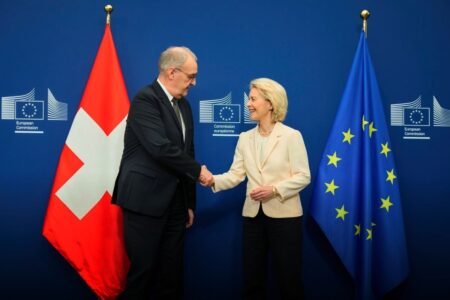— last modified 10 April 2017
Applying a “divide et impera” strategy, China yesterday notified the WTO of a panel request against the EU with the aim to be treated as a market economy in anti-dumping procedures, a treatment which would essentially render those measures useless to counteract dumped imports from China.
Applying a “divide et impera” strategy, China yesterday notified the WTO of a panel request against the EU with the aim to be treated as a market economy in anti-dumping procedures, a treatment which would essentially render those measures useless to counteract dumped imports from China. This WTO panel request is a bit like Lance Armstrong suing the Tour de France in order to have doping be redefined as a medical treatment, and to get back all seven titles he won thanks to unfair competition. But instead of immediately rejecting that claim and preparing a solid legal defence, the EU institutions are just rushing to change the Union’s anti-dumping legislation as soon as possible, to make it less efficient even before any WTO ruling from Geneva clarifies what the EU’s obligations actually are.
That weak and fawning behaviour is exactly the reason why China now proceeds with a panel request against the EU but not the U.S. In December, China announced its belief that both the EU and the U.S. were not in compliance with their WTO obligations in this regard and requested Geneva consultations with both parties. Now China first moves ahead with litigation against the weaker party which appears little interested in defending itself and ensuring the continued possibility of treating China as the non-market economy it is.
If the EU does not defend its current legislation, and in particular the underlying principle that until China has become a market economy, it does not need to be treated as one, but rather focuses only on quickly replacing its current methodology, it will be even easier for the WTO to rule in favour of China’s absurd demand. Besides foreclosing effective defence in the EU against dumped imports from China, that would of course put China in a much stronger position to proceed with a challenge against the U.S. and other EU trading partners in their treatment of imports from China.
Indeed, Washington started working on a strong defence of its anti-dumping law and practice months ago under the Obama administration, and that is now being followed up by the new administration’s trade team. China, on the other hand, has been facing a united front of major trading partners who have changed nothing in their law or practice with regard to imports from China over the last year. Now, the EU seems to be preparing the ground on China’s behalf.
Berlin already is putting pressure on the EU to speed up decision-making on the Commission’s proposal to change the anti-dumping legislation in China’s favour. Fearing pressure on German car manufacturers in China, the current German government appears ready to allow the remaining domestic manufacturing industry to fall prey to the strategic dumping of Chinese companies favoured by the Chinese government.
Recent statements, like the one of the Council President that the EU needs to efficiently “tackle unfair trade practices and market distortions”, or Jean-Claude Juncker’s claim not to be naive but “to show our teeth, taking measures against unfair trade practices”, have no substance in that light. Indeed, according to experts (like Prof. Dr. Marc Bungenberg, Director of the Europa Institute at the University of Saarland who intervened at a recent European Parliament hearing), the Commission’s proposal amounts to a severe weakening of the EU’s anti-dumping instrument. In times where Chinese dumping already wiped out whole industries in Europe, and destroyed thousands of jobs, destabilizing the EU economy, this could have disastrous effects. The bottom line is that it is essential to ensure fair trade and fair competition, to realign with major WTO trading partners such as the U.S., Japan, and Canada, and not to allow China to obtain a licence to dump.
By Milan Nitzschke, spokesperson for AEGIS Europe







